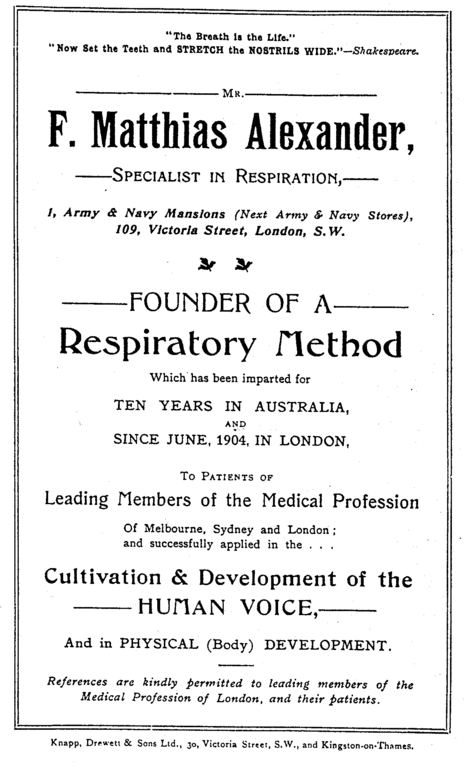JC writes: “Can you tell me whether the Alexander Technique is New Age? I am a musician and my teacher recommended it for ‘body awareness.’ Apparently, it is popular among professional, classical musicians. The idea of “body awareness” sounds very New Age to me!”
You are right, JC, “body awareness” is a classic New Age term and refers to all kinds of movement techniques such as massage, yoga, pilates, Feldenkrais, rolfing, etc.
According to practitioners, the Alexander Technique “is a method that works to change (movement) habits in our everyday activities. It is a simple and practical method for improving ease and freedom of movement, balance, support and coordination. The technique teaches the use of the appropriate amount of effort for a particular activity, giving you more energy for all your activities. It is not a series of treatments or exercises, but rather a reeducation of the mind and body. The Alexander Technique is a method which helps a person discover a new balance in the body by releasing unnecessary tension. It can be applied to sitting, lying down, standing, walking, lifting, and other daily activities…” (“Changing The Way You Work: The Alexander Technique”)
The Alexander Technique was developed by F. M. Alexander (1869-1955), a successful Shakespearian actor from Australia who suffered from chronic laryngitis. Doctors were able to cure him, but only temporarily. It seemed that every time he returned to the stage, so would the laryngitis. Eventually, he became convinced that the problem derived from something he was doing while speaking.
To discover what it was, he set up three tailor’s mirrors and observed himself as he spoke. After a long period of observation, he realized that every time he spoke loudly, he would tighten his neck muscles, which in turn caused the laryngitis. He began to teach himself how to stop tensing these muscles and his vocal problems disappeared.
In solving his own problem, Alexander became convinced that many of the difficulties people experience in learning, performing, or physical functioning, are caused by unconscious habits like his own that can interfere with a person’s natural poise and capacity to learn. He believed that when we stop interfering with the innate coordination of our bodies, we can take on more complex activities with greater self-confidence.
What resulted was a therapy that uses guidance and education to improve posture and movement while teaching a person how to use muscles more efficiently in order to improve the overall functioning of the body. It’s most common usage is for lower back pain and symptoms of Parkinson’s disease.
This might sound innocent, but F. M. Alexander counted among his friends and supporters several high profile theosophists (occultists) in his day, such as John Dewey, the notorious Aldous Huxley and George Bernard Shaw. This troubles me because Alexander definitely includes a philosophical element in his technique based on the concept that a lack of happiness comes from the negative effects of poor posture on the “psycho-physical” self. Learning how to move in ways that produce less stress and strain on the body is thought to create a positive effect on one’s emotional and mental well-being.
This could be more or less problematic, depending on the instructor and how deeply they may be involved in New Age “body awareness.” I did notice that many practitioners who advertise themselves as teachers of the Alexander Technique also offer yoga, pilates, cranio-sacral therapy, and other NewAge practices to their clients.
© All Rights Reserved, Living His Life Abundantly®/Women of Grace® http://www.womenofgrace.com










